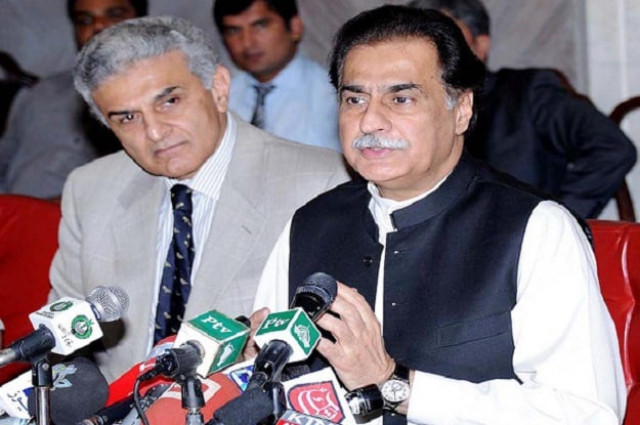Pakistan scraps C’wealth meet amid row
National Assembly Speaker Sardar Ayaz Sadiq was unanimously elected as the CPA president in October 2014

PHOTO: PPI
Pakistan announced on Thursday it is withdrawing as host of the 61st Commonwealth Parliamentary Conference (CPC) due to the forum’s insistence upon inviting the state assembly of the disputed Kashmir region as participant.
Following a meeting of the speakers of India’s provincial and federal assemblies earlier this month, an emergency teleconference of the CPC’s executive committee was held on Wednesday asking Pakistan to meet the Indian demand. Speaker of the Bangladesh parliament, Dr Sherin Sharmin Chaudhry, heads the committee.
Sticking to its stance on the crunch question of Kashmir, Pakistan, however, declined to do so and decided it would no longer host the first ever CPC scheduled to be held in the country from September 30 to October 8, this year.
Three South Asian states, including India, Bangladesh and Sri Lanka, have earlier hosted the Commonwealth Parliamentary Association (CPA), which was formed in 1911 as the British Empire’s parliamentary association with the United Kingdom, Australia, Canada, Newfoundland, New Zealand and South Africa as its initial members.
Now 178 national and provincial assemblies from 53-Commonwealth member states take part in the CPC. Under the rules of the CPC, speaker or chairperson of the national or provincial legislatures and five members each of these houses take part in the conference.
National Assembly Speaker Sardar Ayaz Sadiq was unanimously elected as the CPA president in October 2014 in Cameroon on the occasion of the 60th CPC. It was also decided there that the next conference would be held in Islamabad.
An official of National Assembly said that Parliament of Pakistan as the host of the 61st CPC was making elaborate arrangements for hosting this important meeting.
From around 115 branches of the total 178 parliaments of the 53 CPA countries, some 403 delegates and observers had got registered and confirmed their participation in the conference. These included 27 legislatures of a total 32 member assemblies of the Indian region.
However, earlier this month speakers of the Indian provincial and federal assemblies called on the parliament of Pakistan to issue an invitation to the state assembly to attend the 61st Commonwealth Parliamentary Conference. In their meeting they also decided that India would boycott the 61st CPC if Pakistan did not extant an invitation to the state assembly.
Parliament, however, decided that under no circumstances would the Indian state assembly be invited to attend this event despite its membership of the CPA. It based this decision on historic stand of Pakistan that the Jammu and Kashmir issue is on the UN agenda, as an unsettled dispute since 1947.
“Pakistan upholds the right of people of Jammu and Kashmir to self-determination in accordance with the Resolutions of the UN Security Council. As such, the Parliament of Pakistan cannot issue an invitation to the Indian Occupied Jammu & Kashmir Assembly to attend this conference, as it would be in violation of the UN Security Council’s (UNSC) Resolutions.
“Our position on this issue, as such, is rooted in international law and UN Security Council resolutions,” said an official handout issued by the National Assembly Secretariat.
When asked why Pakistan did not resist when the state assembly was included in the CPC assemblies, a top official said it was done when Pakistan was suspended as a CPA member after the 1999 military coup.
Published in The Express Tribune, August 21st, 2015.


















COMMENTS
Comments are moderated and generally will be posted if they are on-topic and not abusive.
For more information, please see our Comments FAQ